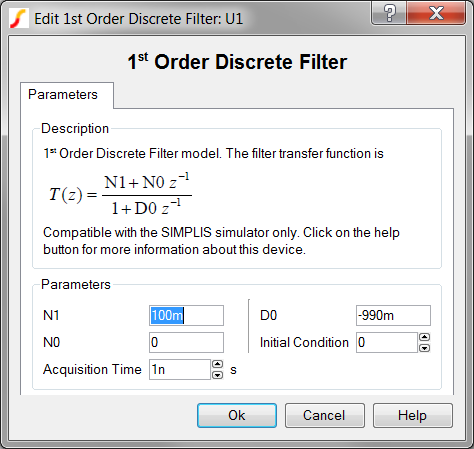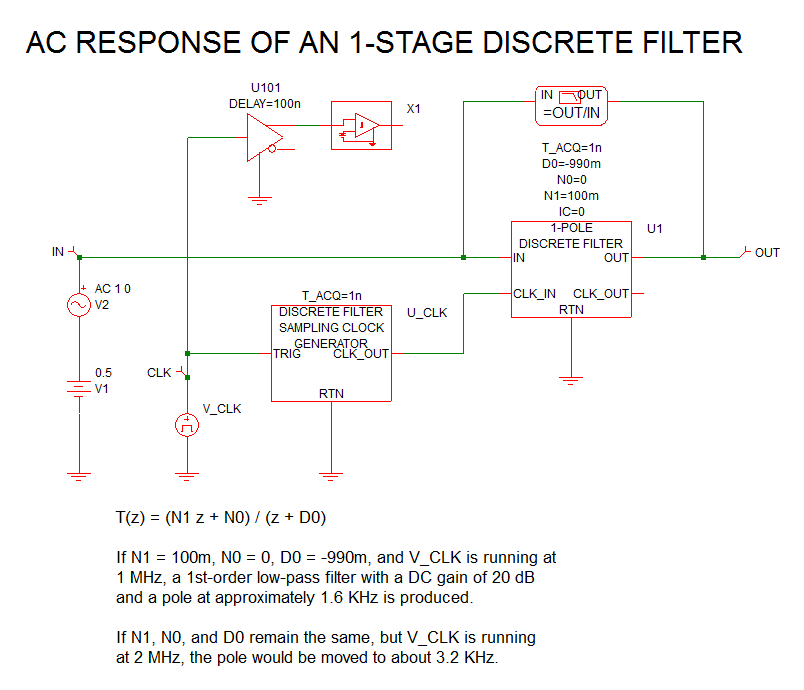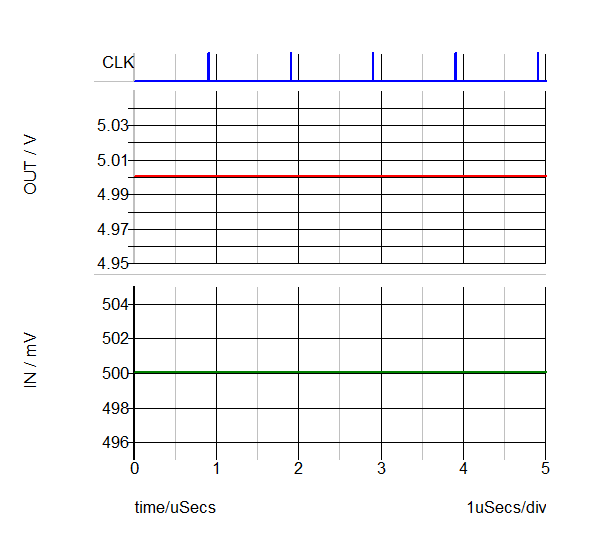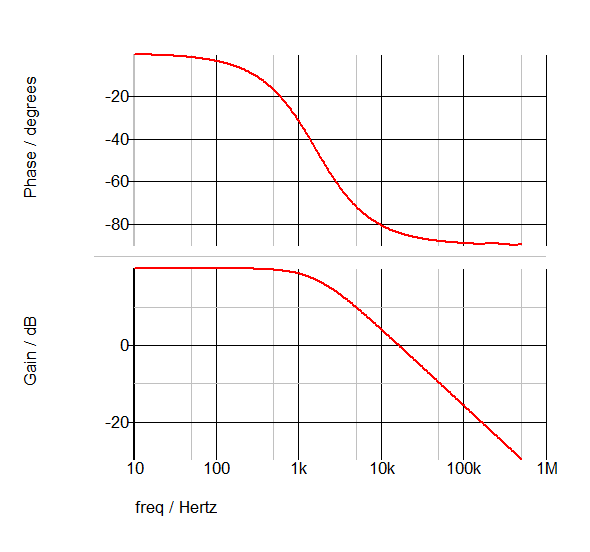SIMPLIS Parts
|
The 1st Order Discrete Time Filter models a first order z-domain transfer function. The transfer function in the z-domain from the input I(z) to the output O(z) for the 1st order discrete filter is shown below:
The difference equation representing this transfer function is

For example, if N1, N0, and D0 have been set to 0, 0.1, and -0.99, respectively, the resulting 1st order discrete filter will have a DC gain of 10.0, a pole located at z=0.99, and no zero.
Related topics:
In this Topic Hide
Model Name: |
1st Order Discrete Time Filter |
|
Simulator: |
|
This device is compatible with the SIMPLIS simulator. |
Parts Selector |
Digital Functions | Discrete Time Filters |
|
Symbol Library: |
None - the symbol is automatically generated when placed or edited. |
|
Model File: |
None - the device model is generated before simulation. |
|
Subcircuit Name: |
SIMPLIS_DIGI1_D_DF_1POLE_Y |
|
Symbols: |
|
|
Multiple Selections: |
Only one device at a time can be edited. |
|
To configure the 1st order discrete time filter, follow these steps:

| Label | Parameter Description |
N1 |
Numerator constant term |
N0 |
Numerator coefficient for z-1 term |
Acquisition Time |
Filter acquisition time in seconds |
D0 |
Denominator coefficient for z-1 term |
Initial Condition |
Initial condition of the filter output |
The test circuit used to generate the waveform examples in the next section can be downloaded here: simplis_034_1stordfilter_example.sxsch.

The POP waveforms below show that the DC input voltage to the filter is 0.5V and the DC output voltage is 5V, confirming that the DC gain of the 1st order discrete time filter is 10.

The following AC waveforms confirm that the DC gain is 20dB and the pole is approximately 1.6kHz.

Because this 1st order discrete filter model is generated by a template script when the simulation is executed, a fixed model cannot be inserted into a netlist. The template script for this device is simplis_make_digital_filter_model.sxscr, which you, as a licensed user, can download in a zip archive of all built-in scripts.
To download this zip file, follow these steps:
Note: You will be prompted to log in with the user name and password given to you when you registered.